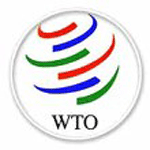Published on Mon, 2022-03-14 14:02
A recent United Nations paper ("The least developed countries need a new generation of international support measures to face the development challenges of the 2020s", United Nations Conference on Trade and Development - UNCTAD, Policy Brief No. 97) stresses that the least developed countries (LDCs) need a new generation of international support measures to face the development challenges of the 2020s. The United Nations Conference on Trade and Development (UNCTAD), in a policy brief issued in February, pointed out that "beset by long-standing structural weaknesses, shortcomings in international support and widening inequalities within and among all countries, [LDCs] have to confront new or intensifying problems worsened by the coronavirus disease (COVID-19) crisis, climate change, the rapidly evolving character of globalisation and the new technological realities of the digital age". |
Published on Fri, 2022-02-04 00:00
"How can the world organize an equitable energy transition away of fossil fuels when it can’t properly organize a global vaccination campaign?" asked Social Watch coordinator Roberto Bissio during a consultation on the Social Summit 2025 proposed by UN Secretary General António Guterres. "The social justice goals are to be achieved in simultaneous with those of environmental justice. What are the vested interests that don’t let it happen? Are we going to tackle them, or will they be sitting with their victims at the table and be whitewashed, pink-washed and greenwashed so they donate a tiny part of their profits to pretend to solve the problem they created?" he added. The debate was held on February 4, 2022, co-organized by Club of Club de Madrid (CdM) and the Southern Voice network. Read his intervention below, and the pdf version is here. |
Published on Tue, 2022-02-01 14:58
Following the adoption of the 2030 Agenda for Sustainable Development, the United Nations Economic and Social Council (ECOSOC) embarked on an effort to harmonize UN Development System (UNDS) activities with the 2030 Agenda and its SDGs as well as system-wide pressure for greater country ownership of in-country activities. Part of this process includes the 2017 Quadrennial Comprehensive Policy Review (A/RES/71/243) and ongoing reform proposals for the UNDS, all aimed at improving the quality of development and meeting the needs and priorities of host countries and donor governments. |
Published on Mon, 2022-01-24 00:00
China has said that it steadfastly supports the least-developed countries (LDCs) during their accession to the World Trade Organization as well as their integration into the global trading system, suggesting that the LDCs are facing several problems in their bid to join the rules-based, member-driven, inter-governmental organization. At a virtual "tenth China Round Table on WTO accessions" held at the WTO on 18-20 January highlighting the key achievements of "China's Least Developed Countries (LDCs) and Accessions Programme" (the China Programme), China elaborated on the specific problems and difficulties being encountered by the LDCs during their WTO accession process. |
Published on Tue, 2022-01-11 08:19
The UN’s highly-ambitious goal of eradicating extreme poverty by 2030 has been severely undermined by a rash of problems worldwide, including an escalating coronavirus pandemic, continued widespread military conflicts and the devastating impact of climate change. According to published estimates, more than 700 million people have been living in poverty around the world, surviving on less than $1.90 a day. But the fast-spreading pandemic, whose origins go back to December 2019, has been singled out as the primary reason for a rise in global poverty– for the first time in 20 years. |







